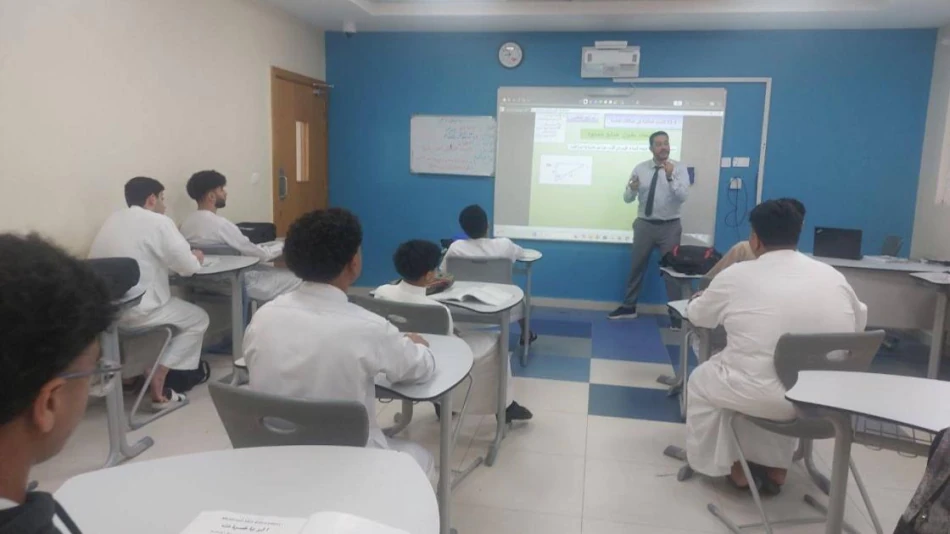
UAE Welcomes 1 Million Students as New Academic Year Begins
UAE Launches Ambitious 2025-2026 School Year with AI Curriculum and Massive Infrastructure Expansion
The United Arab Emirates is positioning itself as a global education leader with the launch of its new academic year on Monday, welcoming one million students across a transformed educational landscape. The Ministry of Education has introduced artificial intelligence as a core subject, opened nine new schools, and implemented comprehensive teacher training programs that signal the country's determination to build a future-ready workforce in an increasingly competitive regional education market.
Strategic Academic Calendar Designed for Modern Learning
The 2025-2026 academic year spans 178 school days across three carefully balanced terms. The first term runs 14 weeks (67 days) from August 25 to December 8, followed by a shorter nine-week second term (47 days) from January 5 to March 13, 2026. The third term extends 13 weeks (64 days) from March 30 to July 3 for students, with teaching staff continuing until July 17.
This structure reflects international best practices in academic scheduling, incorporating mid-term breaks and aligning with the UAE's national holidays including Prophet Muhammad's Birthday on September 4 and National Day celebrations on December 2-3. The calendar also accommodates international assessments, including the PIRLS reading skills study and TIMSS mathematics and science evaluations, positioning UAE students within global educational benchmarks.
Artificial Intelligence Takes Center Stage in Curriculum Revolution
Perhaps the most significant development is the introduction of artificial intelligence as a dedicated subject, with approximately 1,000 specially trained teachers assigned to deliver this cutting-edge curriculum. This move places the UAE ahead of most global education systems and aligns directly with the country's National Strategy for Artificial Intelligence 2031.
Regional Competition and Global Positioning
The AI curriculum initiative positions the UAE competitively against regional education hubs like Singapore and Qatar, both of which have made substantial investments in technology-driven education. Unlike piecemeal digital literacy programs seen elsewhere, the UAE's comprehensive approach suggests a systematic effort to create an AI-native generation of students.
This strategy mirrors successful models in Estonia and Finland, where early integration of advanced technology concepts has produced measurable improvements in student innovation metrics and university readiness scores.
Massive Professional Development Investment Signals Quality Focus
The ministry invested heavily in teacher preparation, training 23,000 educational staff through 170 hours of professional development. This included 40 advanced workshops for leadership and teachers, plus 20 specialized sessions for support staff. The training split evenly between early childhood and primary educators (12,000) and secondary level staff (11,000).
This scale of professional development represents approximately 4% of the UAE's total education workforce and demonstrates a commitment to quality that exceeds international standards. By comparison, most OECD countries mandate only 20-40 hours of annual professional development for teachers.
Infrastructure Expansion Meets Growing Demand
Nine new schools opened across the emirates to accommodate 25,000 new students, while 460 existing schools underwent comprehensive maintenance and upgrades. The ministry also recruited 830 new educational staff members, suggesting careful capacity planning to maintain teacher-student ratios.
Digital Infrastructure and Safety Investments
The government distributed 47,000 laptops to students and printed 10 million textbooks, indicating a hybrid approach that balances digital learning with traditional resources. Additionally, 5,500 buses equipped with modern safety standards ensure secure transportation, addressing a critical infrastructure need in a country where school transport is essential due to urban sprawl.
Cultural Identity Mandate Creates Compliance Challenge
A new regulatory framework requires private schools to teach Arabic language, Islamic education, and social concepts in kindergarten and early primary grades. Engineer Mohammed Al Qasim confirmed the ministry has established comprehensive monitoring systems to ensure compliance.
This mandate reflects broader regional trends toward cultural preservation amid globalization, similar to policies in Saudi Arabia and Qatar. However, it may create operational challenges for international schools that have traditionally focused on global curricula, potentially affecting the UAE's attractiveness to expatriate families who value purely international education options.
Market Implications and Investment Outlook
The UAE's education investments signal strong government confidence in long-term economic diversification beyond oil revenues. The emphasis on AI education particularly supports the country's ambitions to become a regional technology hub, competing directly with Dubai's existing fintech and startup ecosystem.
For international education companies, the UAE's approach creates opportunities in teacher training, educational technology, and curriculum development. However, the cultural identity requirements may limit purely Western educational models, favoring providers who can blend international standards with local cultural elements.
The 2025-2026 academic year represents more than routine educational planning—it's a calculated bet on the UAE's ability to produce globally competitive graduates while maintaining cultural authenticity, setting a template that other Gulf nations are likely to study and potentially replicate.
Most Viewed News

 Omar Rahman
Omar Rahman






